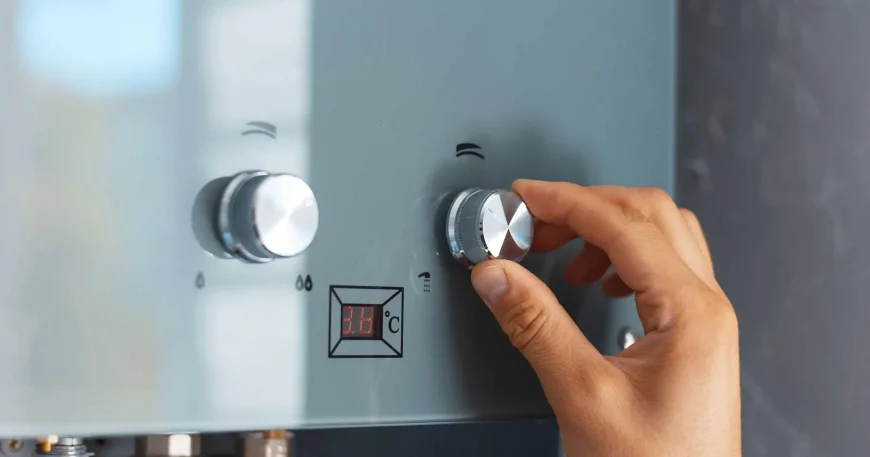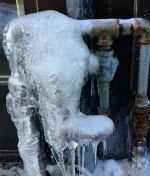
Choosing the Right Water Heater for Your Home
Are you tired of taking cold showers every morning? Do you want to upgrade your home’s water heating system to meet your needs? Choosing the right water heater is essential for a comfortable home, and in this comprehensive guide, we will walk you through everything you need to know to make an informed decision.
Understanding the Importance of a Good Water Heater
Before we dive into the specifics, let’s first discuss the importance of having a reliable water heater in your home. Your water heater plays a crucial role in providing hot water for various activities, including showering, cooking, and cleaning. Having a dependable water heater ensures that you and your family can enjoy the comfort and convenience of hot water whenever you need it.
Imagine waking up on a cold winter morning, dreading the thought of stepping into a freezing shower. With a good water heater, you can bid farewell to those shivers and start your day with a warm and invigorating shower. The soothing sensation of hot water cascading down your body can help you relax and prepare for the day ahead.
But the importance of a water heater goes beyond just personal comfort. Think about the practicality it brings to your daily chores. Washing dishes becomes a breeze with hot water, as it helps remove grease and grime more effectively. Doing laundry becomes less of a hassle, as hot water can help dissolve detergent and remove tough stains. Having a reliable water heater means you can tackle these tasks efficiently and with ease.
The Role of a Water Heater in Your Home
A water heater heats cold water that enters your home’s plumbing system and delivers it to your faucets and appliances. It raises the temperature to a comfortable level, making it suitable for various household tasks. Without a functional water heater, you would have to endure the discomfort of cold showers and struggle with cleaning dishes and laundry effectively.
Let’s delve deeper into how a water heater works. Inside the water heater tank, there is a heating element or a burner that warms the water. As the water heats up, it rises to the top of the tank, ready to be distributed throughout your home. The thermostat in the water heater ensures that the temperature remains consistent, so you can enjoy a steady flow of hot water.
Modern water heaters also come with safety features to protect you and your home. For example, many models have a pressure relief valve that releases excess pressure to prevent the tank from bursting. This feature gives you peace of mind, knowing that your water heater is designed with your safety in mind.
Energy Efficiency and Cost Savings
Aside from providing hot water, a good water heater also offers energy efficiency, which leads to significant cost savings over time. Water heaters consume a considerable amount of energy, and opting for an energy-efficient model can reduce your utility bills and lower your carbon footprint.
When it comes to energy efficiency, there are several factors to consider. Insulation plays a crucial role in minimizing heat loss from the water heater tank. A well-insulated tank can retain heat more effectively, reducing the need for the water heater to work harder and consume more energy.
Another aspect of energy efficiency is the type of fuel your water heater uses. Electric water heaters are known for their high energy efficiency, as they convert almost all the energy they consume into heat. On the other hand, gas water heaters may have slightly lower efficiency due to energy loss during combustion. However, advancements in technology have made gas water heaters more efficient than ever before.
In fact, according to the U.S. Department of Energy, upgrading to a more efficient water heater can save an average household up to $300 annually. Imagine the savings you can enjoy over the lifespan of your water heater!
Furthermore, energy-efficient water heaters contribute to environmental sustainability. By reducing your energy consumption, you are also reducing your carbon footprint and helping to combat climate change. So, investing in an energy-efficient water heater not only benefits your wallet but also the planet.
Different Types of Water Heaters
Now that you understand the importance of a water heater, let’s explore the different types available in the market:
Tankless Water Heaters
Tankless water heaters, also known as on-demand water heaters, heat water as it flows through the unit. Unlike storage tank water heaters that store and continuously heat a large volume of water, tankless models only heat water when needed. These heaters offer energy efficiency and endless hot water supply, making them an excellent choice for households with high-demand hot water needs.
One of the key advantages of tankless water heaters is their compact size. Since they do not require a storage tank, they take up much less space compared to traditional storage tank water heaters. This makes them ideal for small apartments or homes with limited utility room space.
In addition to their space-saving design, tankless water heaters also have a longer lifespan compared to storage tank water heaters. With proper maintenance, a tankless water heater can last up to 20 years, while a storage tank water heater typically lasts around 10-15 years.
Storage Tank Water Heaters
Storage tank water heaters are the most common type found in residential homes. These units store and heat a specific amount of water in a tank, ensuring hot water is readily available when you turn on the tap. While they may cost less initially, they consume more energy to maintain the temperature of the stored water constantly.
One advantage of storage tank water heaters is their ability to provide hot water simultaneously to multiple faucets or appliances in the house. This makes them suitable for households with a higher hot water demand, such as families with multiple members or homes with multiple bathrooms.
Another benefit of storage tank water heaters is their relatively simple installation process. Since they have been widely used for many years, plumbers are familiar with their setup and can easily replace or repair them if needed.
Heat Pump Water Heaters
Heat pump water heaters work by extracting heat from the air or ground to warm the water. This energy-efficient technology makes these heaters an excellent choice for climates with moderate temperatures. They are more expensive upfront but can provide long-term savings on energy bills.
One of the key advantages of heat pump water heaters is their high energy efficiency. They can generate up to three times more energy than they consume, making them an environmentally friendly option. By reducing energy consumption, heat pump water heaters can help lower greenhouse gas emissions and contribute to a more sustainable future.
Heat pump water heaters also have a dual function. In addition to heating water, they can also cool the surrounding air, acting as an air conditioner during hot summer months. This dual functionality can be particularly beneficial in regions with fluctuating temperatures.
Solar Water Heaters
If you’re looking to reduce your carbon footprint and rely on renewable energy, solar water heaters are worth considering. These systems use energy from the sun to heat your water, making them not only eco-friendly but also cost-effective in the long run. They are most effective in sunny regions but can still provide hot water on cloudy days.
One of the main advantages of solar water heaters is their potential for significant energy savings. By harnessing the power of the sun, these systems can reduce or eliminate the need for traditional energy sources, resulting in lower utility bills. Over time, the cost savings can offset the initial investment required for installing solar water heaters.
Furthermore, solar water heaters have a long lifespan, often lasting more than 20 years with regular maintenance. This longevity contributes to their overall cost-effectiveness and makes them a reliable choice for homeowners looking for a sustainable hot water solution.
It’s important to note that solar water heaters may require additional equipment, such as solar panels and storage tanks, depending on the specific system. Consulting with a professional installer can help determine the most suitable setup for your home.
Factors to Consider When Choosing a Water Heater
Now that you’re familiar with the different types of water heaters, let’s delve into the factors you should consider to choose the right one for your home:
Size and Capacity
One of the essential considerations is the size and capacity of the water heater. You’ll want to ensure that it can meet the hot water demands of your household. A professional can help determine the appropriate size based on factors such as the number of occupants, bathrooms, and appliances in your home.
Energy Efficiency Ratings
Energy efficiency is crucial not only for cost savings but also for reducing environmental impact. Look for water heaters with high energy efficiency ratings, such as an Energy Star certification. These models are designed to use less energy while still delivering the hot water you need.
Cost and Installation
Your budget plays a significant role in your water heater selection. Consider both the upfront cost of the unit and the long-term operational expenses when making your decision. Additionally, think about the installation requirements. While some water heaters can be installed as a DIY project, others may require professional assistance.
Maintenance and Lifespan
Regular maintenance is essential to ensure the longevity and optimal performance of your water heater. Before making a final decision, research the maintenance requirements and lifespan of different models. Understanding the upkeep can help you plan for future expenses and avoid unexpected breakdowns.
The Installation Process
Once you have chosen the right water heater for your home, it’s time to consider the installation process:
Professional Installation vs. DIY
While some homeowners may choose to install their water heater themselves, it’s generally recommended to hire a professional plumber for the installation. They have the expertise and knowledge to handle the intricacies of water heater installation, ensuring it’s done correctly and safely.
Safety Measures During Installation
During the installation process, it’s vital to prioritize safety. Always follow the manufacturer’s instructions and ensure you have the necessary tools and protective equipment. Turn off the power and gas supply before beginning any work, and if you’re unsure about anything, don’t hesitate to seek professional help.
Choosing the right water heater for your home is a decision that can significantly impact your daily comfort, energy consumption, and financial well-being. By understanding the importance of a reliable water heater, exploring the various types available, and considering the essential factors, you can confidently select the perfect water heater for your home. Remember, when it comes to installation, prioritize safety and consult a professional to ensure a seamless and hassle-free process. Enjoy the luxury of hot water whenever you need it! Contact us to schedule a consultation.







